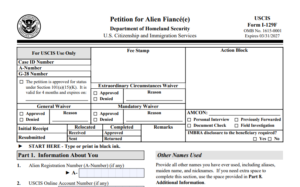United States President Donald Trump’s Executive Order (“EO”) banning certain immigrants from immigrating may end up increasing the number of visas available for employment-based immigrant visa categories.
 Employment-based immigrant visas are capped at 140,000 worldwide per fiscal year while family-based immigrant visas are limited to roughly 250,000 per year. The current immigration ban places a heavier emphasis on restricting family-based immigrants compared to employment-based immigrants. While a pause of only 60 days may do little to alter the make-up of immigration to the U.S., in the long-term, extensions which were allocated within the EO could end up redefining the overall composition of immigrants who receive immigrant visas and green cards if this policy remains in place for some time.
Employment-based immigrant visas are capped at 140,000 worldwide per fiscal year while family-based immigrant visas are limited to roughly 250,000 per year. The current immigration ban places a heavier emphasis on restricting family-based immigrants compared to employment-based immigrants. While a pause of only 60 days may do little to alter the make-up of immigration to the U.S., in the long-term, extensions which were allocated within the EO could end up redefining the overall composition of immigrants who receive immigrant visas and green cards if this policy remains in place for some time.
According to an analysis conducted by Migration Policy Institute, approximately 52,000 immigrant visas are expected to be affected because of the 60-day immigration ban. Government statistics show nearly half a million immigrants moved to the U.S. in 2019 who had received their immigrant visas from U.S. embassies and consulates abroad, while more than half a million immigrants obtained permanent residence by adjusting their status within the United States. According to the U.S. Department of Homeland Security (“DHS”), there were four times as many immigrants who received permanent residence through adjustment of status as opposed to those who received their permanent residence by applying for an immigrant visa at a U.S. embassy or consulate abroad.
The waiting period for immigrants seeking immigrant visas is based on the date when their petition was filed with the Department of Homeland Security. The U.S. Department of State (“DOS”) releases these “priority dates” in its monthly visa bulletin. To use the total allocated family-based immigrant visas, DOS would need to find more immigrant visa applicants who are adjusting status from within the country to take away from intending immigrants abroad who are ineligible due to the immigration ban. The DOS could do this by advancing those priority dates forward in time to allow those adjustment applicants to become eligible for permanent residence more quickly.
For more information on obtaining an employment-based immigrant visa for applicants located in Asia, contact us today at info@enterlinepartners.com and speak with one of our U.S. immigration lawyers in Ho Chi Minh City, Manila and Taipei.
ENTERLINE & PARTNERS CONSULTING
Ho Chi Minh City, Vietnam Office
3F, IBC building
1A Cong Truong Me Linh Str.
District 1, HCMC, Vietnam
Tel: +84 933 301 488
Email: info@enterlinepartners.com
Facebook: Enterline & Partners – Dịch vụ Thị thực và Định cư Hoa Kỳ
Website: http://enterlinepartners.com
Manila, Philippines Office
Unit 2507 Cityland 10 Tower 1
156 H.V. Dela Costa Street
Makati City, Philippines 1209
Tel: +632 5310 1491
Email: info@enterlinepartners.com
Facebook: Enterline and Partners Philippines
Website: https://enterlinepartners.com/language/en/welcome/








